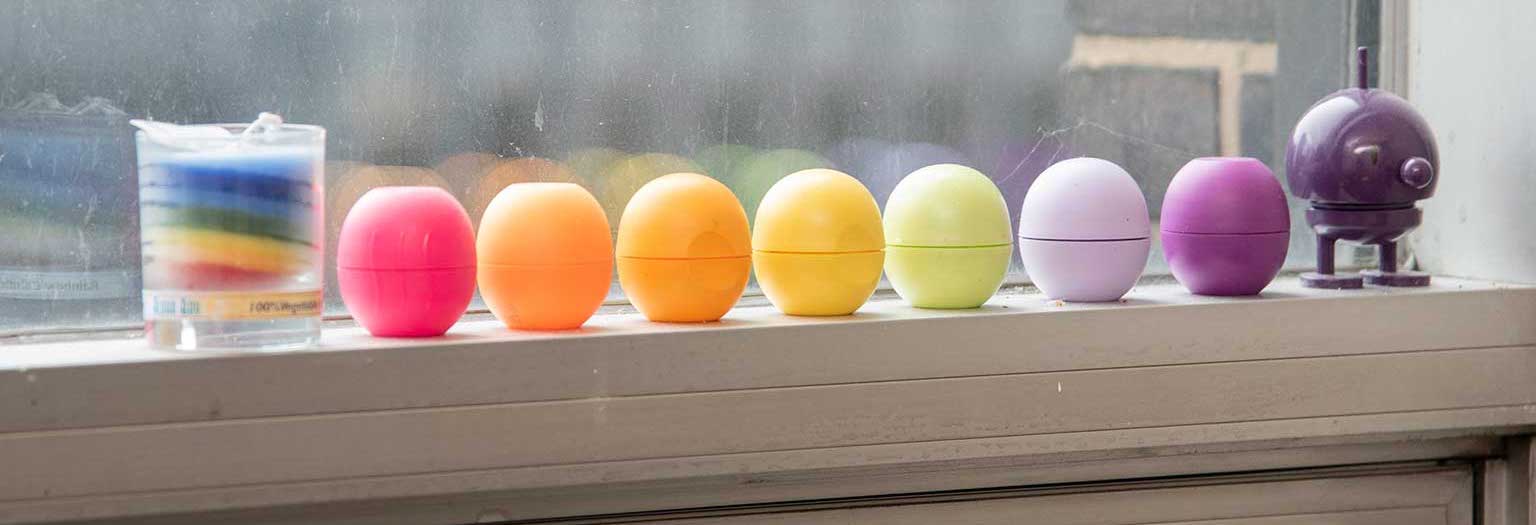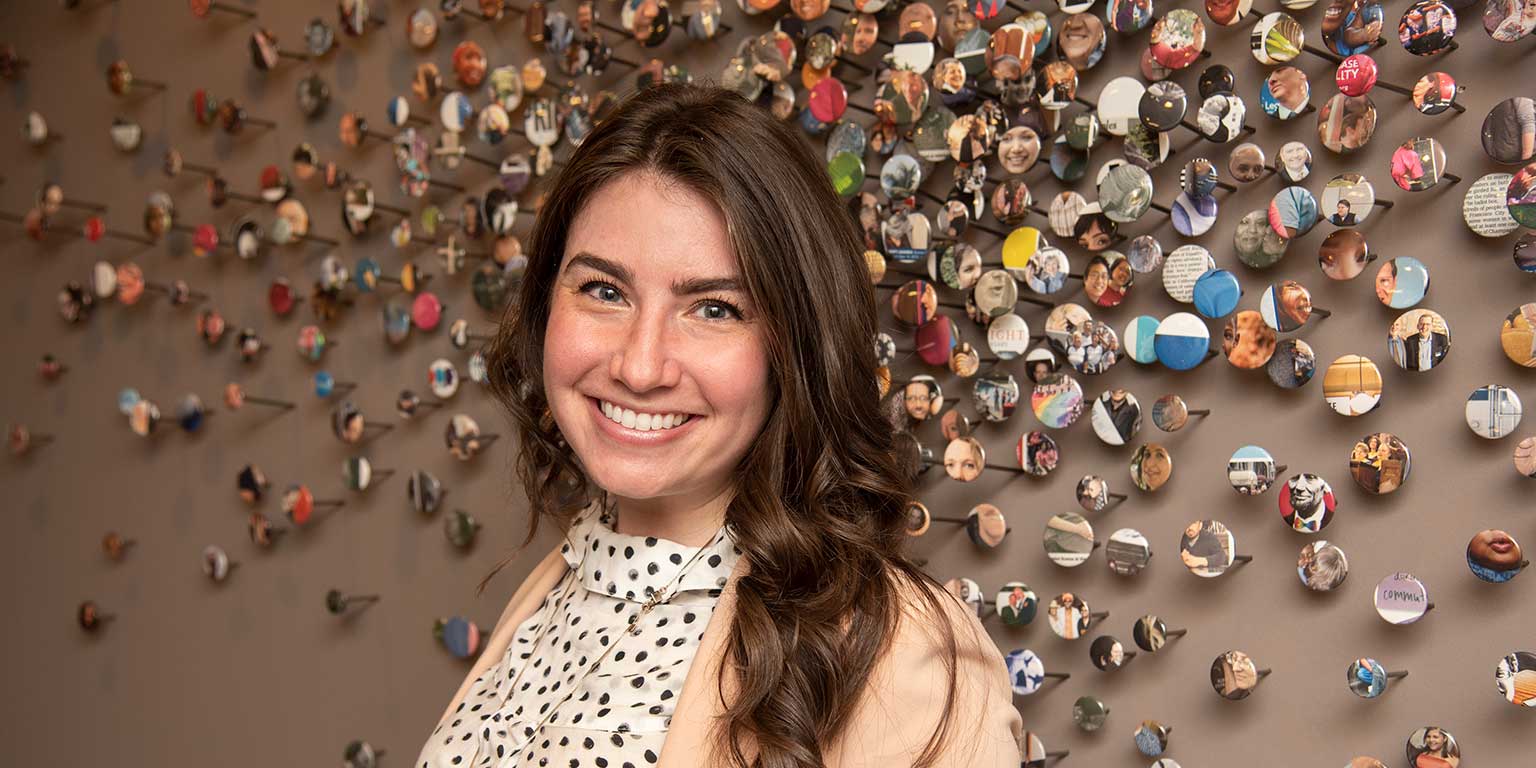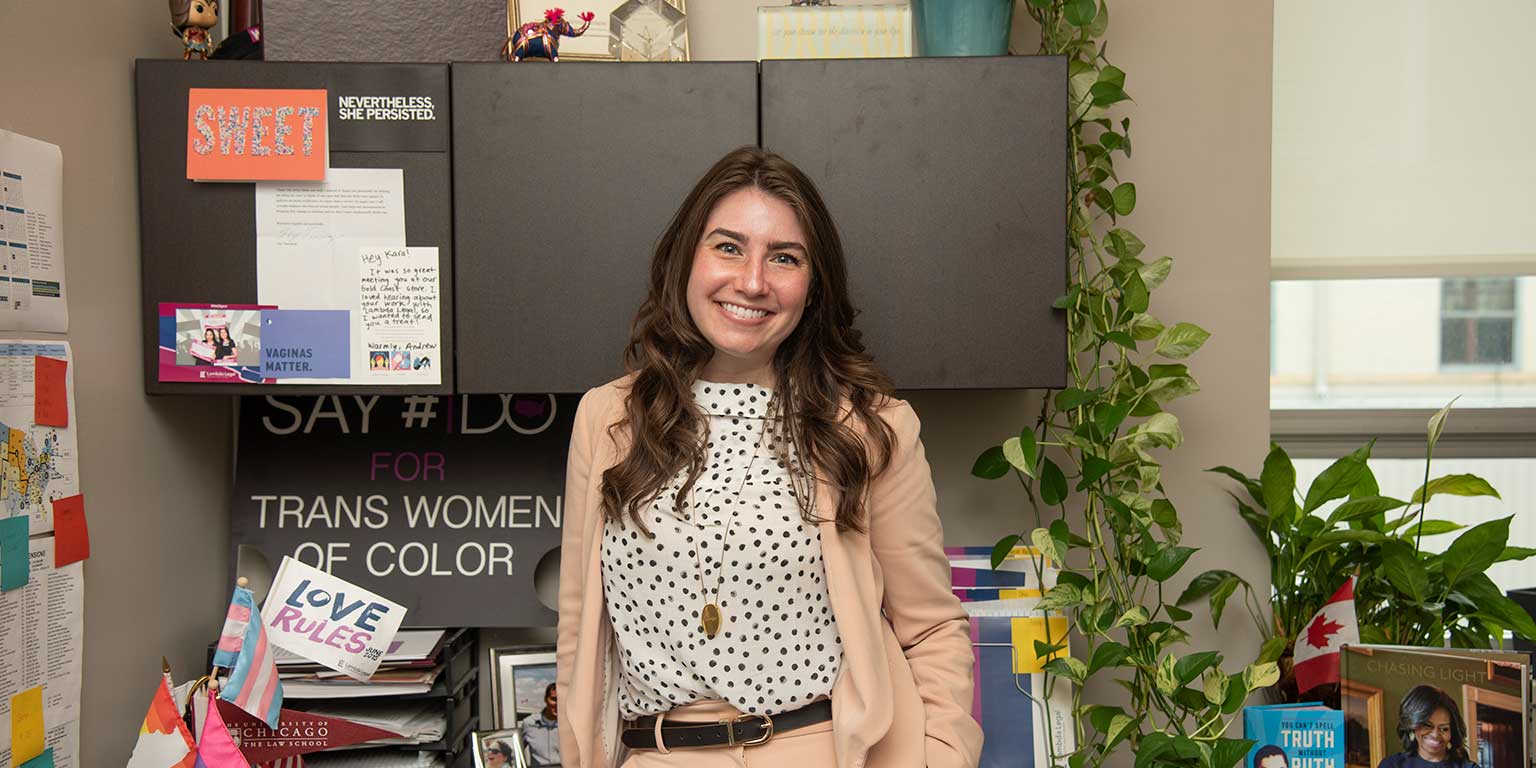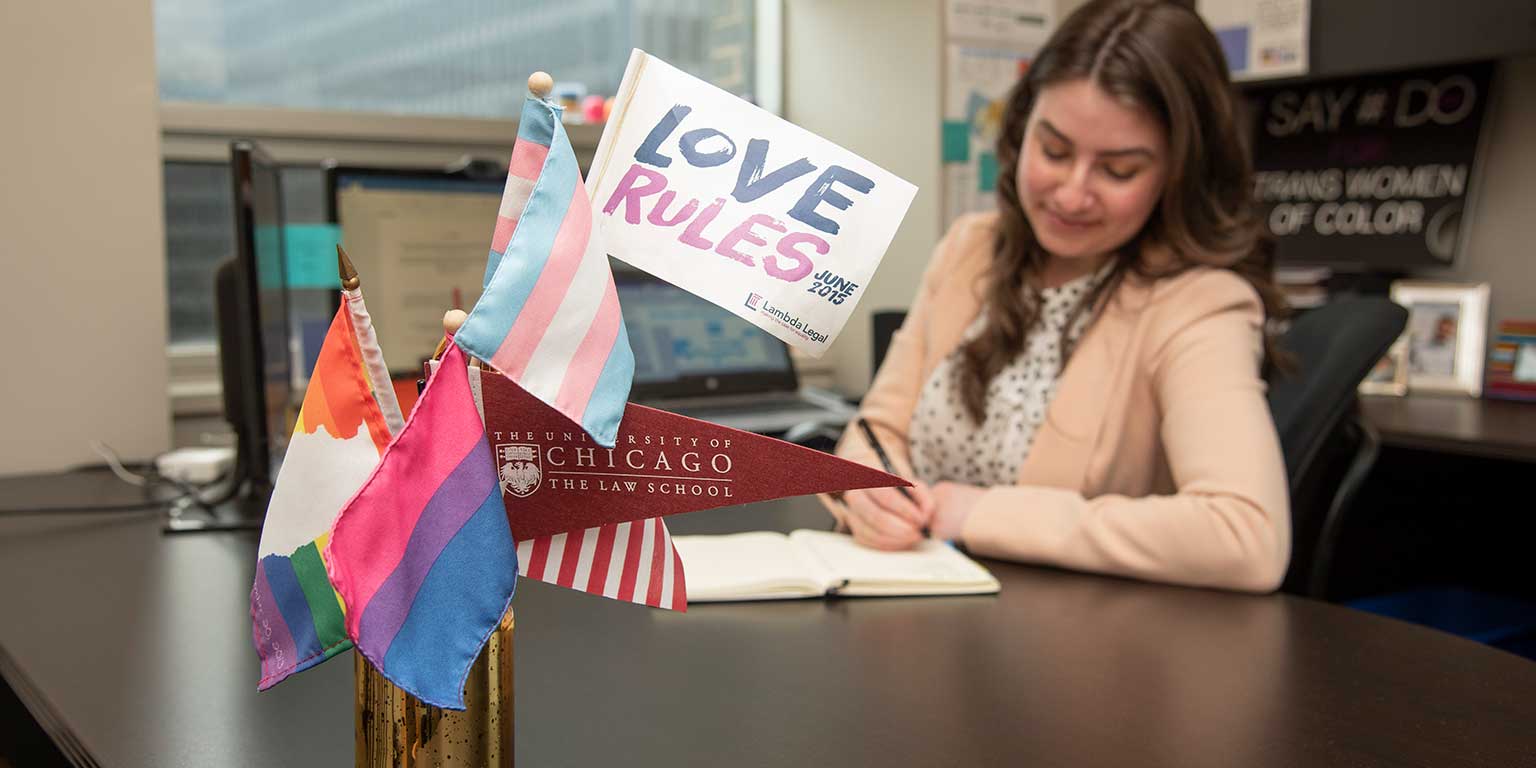By Elizabeth Hoover | Summer 2019
Kara Ingelhart’s (B.A. ’12, Biology, Gender Studies) office at Lambda Legal is draped with plants, snaking their vines over a copy of Michelle Obama’s Chasing Light, a “nevertheless she persisted” placard, and an assortment of political yard signs reading, “Vaginas Matter,” “Support Black Trans Women,” and “Hoosiers in Love.” A neat row of thank-you cards from clients line her window sill overlooking the Chicago Loop.
Founded in 1973, Lambda Legal is the country’s largest advocacy group for LGBTQ and HIV-positive individuals. There, Kara has worked on cases protecting service members living with HIV from discrimination, enabling individuals to change the gender listed on their birth certificates, and ensuring parental rights for LGB people, to name a few. Raised in Crown Point, Ind., she tells me that she dreamt of working in Chicago since she was eight years old. On a family trip, she saw a woman wearing a suit and tennis shoes while carrying her pumps.
“I want to be like that woman,” she told her grandmother. “I want to carry my shoes to work.”
Now, she often carries her shoes on the 25-minute walk from her historic apartment building in the River North neighborhood, where she lives with her elegant orange tabby, Fred. More than carrying shoes, though, she was driven by a deep sense that discrimination is wrong.
“All my life I have found it odd to treat someone differently based on a characteristic that has nothing to do with how they are being measured,” she says.
As a lawyer, she addresses “illogical differential treatment” using the power of language.
“I take my clients’ passionate words and make them legally resonant,” she tells me. “It’s a huge power to translate words into a tool for change.”






